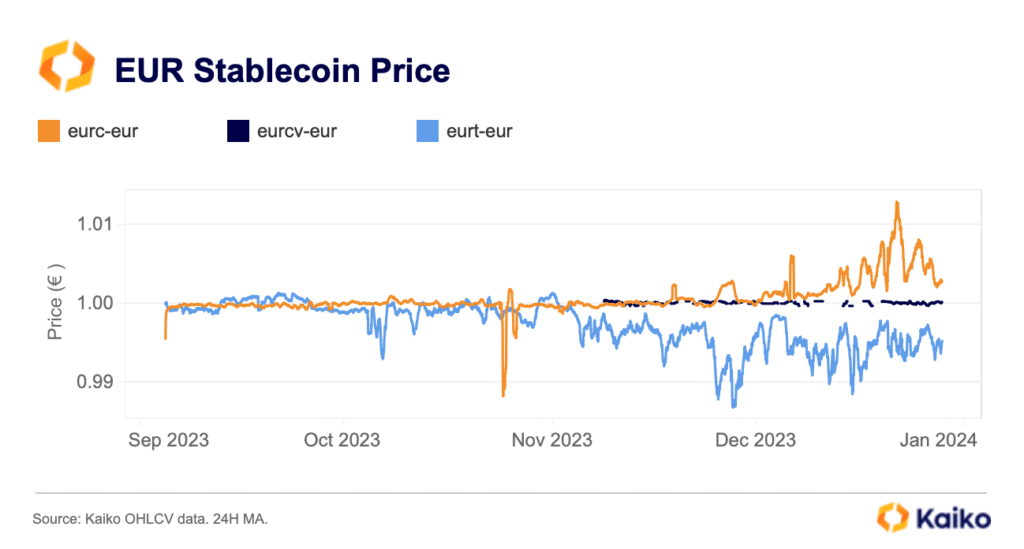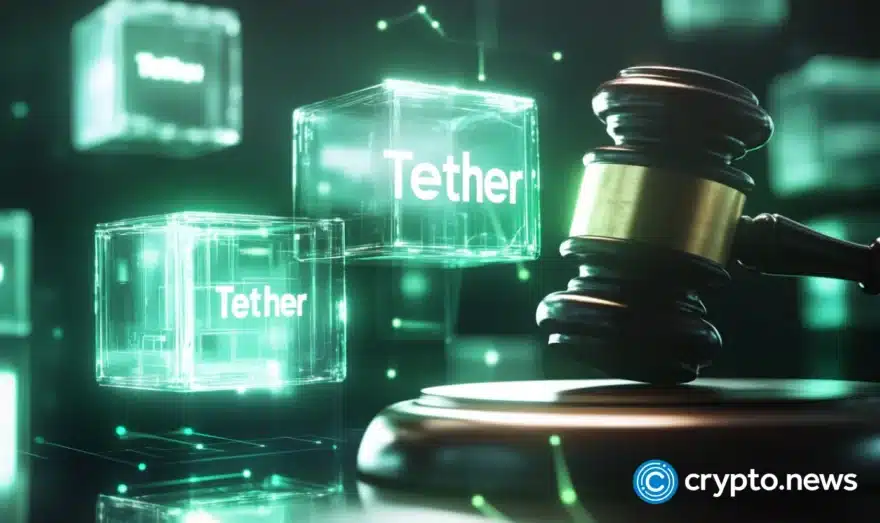Tether’s euro-stablecoin lags behind Circle’s EURC for the third straight month

Data revealed by Kaiko shows that Tether’s euro-pegged stablecoin has traded at a “persistent discount” to the euro since November 2023.
Tether‘s euro-pegged stablecoin (EURT) has consistently traded at a discount to the euro since November 2023, failing to compete with Circle‘s EURC stablecoin, according to data revealed by Kaiko.
In a blog post on Jan. 29, the Paris-headquartered firm noted that Circle’s EUR Coin has maintained a premium for a few months in a row, indicating a surge in demand. Meanwhile, Société Générale‘s EURCV, the first stablecoin issued by a bank, has largely maintained its peg since its launch in early December 2023.

However, the EUR stablecoin market remains fragmented, with EURT primarily traded on offshore platforms like HTX (formerly Huobi) and Bitfinex, while EURC dominates trading on decentralized exchanges, Kaiko noted, adding that this fragmentation could contribute to the observed volatility in their respective values.
Despite the competition among various euro-pegged stablecoins, concentration prevails in the market, with just five crypto exchanges accounting for 98% of total euro trade volume. According to Kaiko, crypto exchanges Bitvavo, Kraken, Coinbase, Bitstamp, and Binance collectively dominate the landscape, handling over 98% of total trades.
Kaiko analysts point out a correlation between the quantity of euro volume and the number of euro-denominated trading pairs listed by each exchange. Notably, Kraken and Bitvavo, boasting over 200 euro pairs each, solidify their positions with the highest euro-denominated volume. On the other hand, global exchanges like Bitflyer and Bybit focus on regions such as APAC, contributing to the diverse landscape of euro-denominated trading.

















